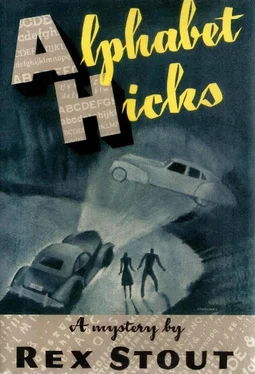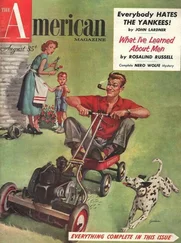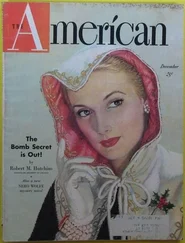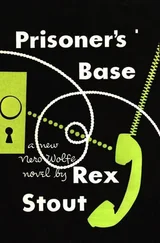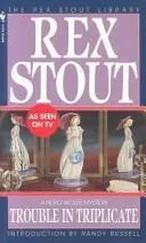Hicks shook his head. “Go back a little. Where and when did you see it last?”
“I only saw it once. In the testing room at my office. I thought I took it—”
“When was that?”
“Tuesday. A week ago Tuesday.”
“But you said the conversation took place on the fifth, and a week ago Tuesday was the tenth.”
“What of it?” Dundee was not making friends. “I had paid for so damned many of those records from Vail’s office without any result that I had lost interest in them. I had them stacked in cases in the testing room. Once in a while I ran through a batch. I was doing that, that afternoon, and there I heard it — my wife’s voice and Vail’s. I was stunned. I was absolutely stunned. I ran it through again, and right in the middle of it somebody came in. I stopped the machine and took the plate off and put it at the end of the case. Other men came. We had a conference scheduled, among other things to test results on variations of the formula on this plastic. We’re selling it for all kinds of sound reproduction. They came from Bridgeport, from the factory, for the conference. I stayed with them a while as long as I could stand it, and then I got the plate from the end of the case and took it to my room and locked it in a drawer of my desk, and went home and — spoke to my wife.”
“Why didn’t you take the plate with you?”
“That’s what I’d like to know,” Dundee said bitterly. “I didn’t want to hear the damned thing in my home — and the servants — and it was a business matter. My wife denied it—”
“I know that part.”
“Very well. I spent that night at a hotel. The next day I asked my wife—”
“I know that too. She was to go to your office at four o’clock to hear the proof, and at three you phoned her not to go.”
“Yes. Because I got the plate from my desk and went to the testing room and started it on the machine, and it wasn’t the one. I supposed someone had put another plate at the end of the case, though I thought I had kept my eye on it. And all the others were gone, case and all. After the conference they had taken everything from the testing room, some to the factory and some out here. I sent instructions to both places to return all JV plates to me—”
“JV for Jimmie Vail?”
“Yes. That’s how Sharon’s man marked them, JV and the date, in pencil. This plastic takes either pencil or ink. I got them back and ran them through, but it wasn’t there.”
“Did you get back the same number of JV September fifth plates as there had been originally?”
“I don’t know. I hadn’t counted them.”
“Didn’t Sharon have a record of the number he had turned in?”
“No. His man gets paid by the day, not per plate.”
“Does he hear the sounds — the conversations — as they are recorded?”
“No. The way it works—”
“I wouldn’t understand it. Does Sharon run the plates through, listen to them, before he sends them to you?”
“No.”
“Then no one but you ever heard that record?”
“I suppose not. I hope not. But I heard it.”
“Sure, I know you heard it. Have you done any more searching?”
“Yes. The factory and here, both. There are thousands of these plates filed away, tens of thousands, but no more of the JV plates were found. So I—”
Dundee stopped abruptly.
Hicks nodded. “So here you were having a go at every plate in the place, no matter how it was marked. Suspecting that someone had deliberately changed the marking?”
“Suspecting nothing,” Dundee snapped. “But I want that plate.”
“So do I,” Hicks said sympathetically. “I’ve been paid two hundred dollars for it. Were Brager and your son present at the conference that afternoon?”
“They—” Dundee bristled. “My son,” he said, and stopped as if he had completed a sentence. Possibly he would have gone on to furnish the remainder of it if there had been no interruption, but Hicks’s eyes had left him to concentrate suddenly on the view through the window. Dundee turned his head to look, and saw that it was Heather Gladd approaching, trotting across the meadow. It was more of a shuffle than a trot, her feet and legs betrayed into clumsiness by the urgency that impelled them; and as she got to the edge of the graveled drive in front of the building she stumbled and nearly fell, regained her balance, came on to the door, and entered.
She was panting, which was incongruous and even startling, because her face, which should have been flushed from an effort that made her pant, was gray with no color at all except for a smudge of dirt that streaked from a corner of an eye toward a corner of her mouth.
Dundee said something, but disregarding him, she opened a leather handbag she was carrying, fumbled in it, and took out something which, unfolded, proved to be a ten-dollar bill. She held it out to Hicks and said:
“That’s for a retainer. I need some advice.”
Dundee repeated what he had said before.
“We’re busy,” he said sharply. “Go back to the house.”
Hicks was out of his chair. He took a folded white handkerchief from the breast coat pocket of his new brown suit, held it by a tip and flipped it to open it out, and with it wiped at the smear on the girl’s face. He was as impersonal about it as though he were cleaning a windshield.
“What is it?” Heather asked.
“Dirt. It still shows, a couple of scratches.”
“I fell down in the woods.”
“Damn it—” Dundee sputtered explosively, and stopped abruptly as his eye caught something through the window. The others looked too, and saw a six-footer in the uniform of the State Police, having emerged from the woods, striding across the meadow.
“Oh!” Heather gasped. “I wanted—”
Hicks had her by the arm. “Come on,” he commanded. He spoke rapidly to Dundee, “Engage him. Take him to the house in your car — be busy with those plates — tell him we’re on our way back through the woods—”
He was moving, with the girl, to the door that led to the inside, to the lair of the dragons that had rumbled and bellowed that afternoon; and, ignoring Dundee’s expostulations, he opened it and pulled Heather through and closed the door behind them.
He stood there with her, motioning her for silence, and surveyed the place with his eyes. It was a long and spacious room, and appeared to be indeed the lair of dragons, with great vats and furnaces, arrays of benches and retorts and mysteriously complicated paraphernalia, and intricate networks of metal tubing like nests of entwined snakes. The walls and floor were of plastic.
Straining his ears, he could barely catch the opening and closing of the outside door, and the voices that followed were but the faintest of murmurs. Apparently the soundproofing was good. He put his lips to Heather’s ear and whispered:
“Back door?”
She nodded. He signaled to her to lead the way, and she did so on tiptoe, past the long row of cluttered benches and cabinets to the rear, where he cautiously opened a door, and found to his surprise that here was another large room, a jungle of packing cases and cartons and various kinds of materials. He let Heather thread the maze ahead of him, and when they came to another door, a wide one of heavy metal, he noiselessly turned the knob of the Hurley tumbler lock and pulled the door open, passed through after the girl, and closed the door. They were on a concrete landing platform at the rear of the building, and a glance showed him that to the right the woods were only twenty paces away. He paused a moment to listen for the sound of Dundee’s car but heard nothing. They descended the concrete steps and made the woods. Here there was no path and the ferns and undergrowth were dense, but after a little they came to an open spot with an enormous boulder in the middle of it.
Читать дальше
